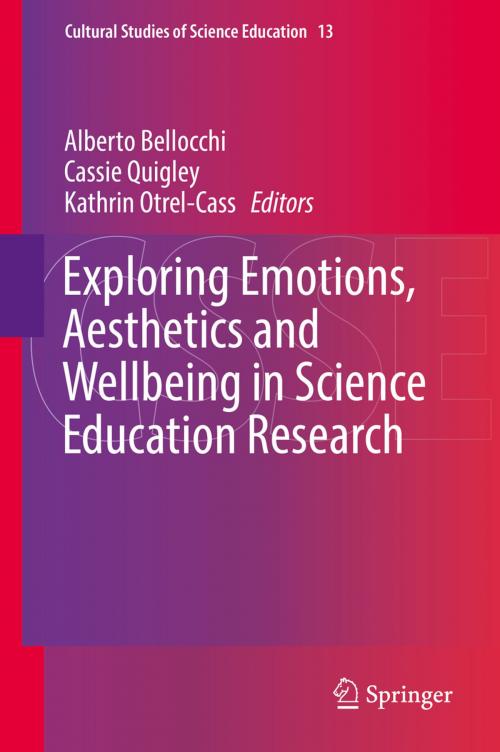Exploring Emotions, Aesthetics and Wellbeing in Science Education Research
Nonfiction, Science & Nature, Science, Other Sciences, Study & Teaching, Reference & Language, Education & Teaching, Educational Theory, Philosophy & Social Aspects| Author: | ISBN: | 9783319433530 | |
| Publisher: | Springer International Publishing | Publication: | October 19, 2016 |
| Imprint: | Springer | Language: | English |
| Author: | |
| ISBN: | 9783319433530 |
| Publisher: | Springer International Publishing |
| Publication: | October 19, 2016 |
| Imprint: | Springer |
| Language: | English |
This book addresses new research directions focusing on the emotional and aesthetic nature of teaching and learning science informing more general insights about wellbeing. It considers methodological traditions including those informed by philosophy, sociology, psychology and education and how they contribute to our understanding of science education. In this collection, the authors provide accounts of the underlying ontological, epistemological, methodological perspectives and theoretical assumptions that inform their work and that of others. Each chapter provides a perspective on the study of emotion, aesthetics or wellbeing, using empirical examples or a discussion of existing literature to unpack the theoretical and philosophical traditions inherent in those works. This volume offers a diverse range of approaches for anyone interested in researching emotions, aesthetics, or wellbeing. It is ideal for research students who are confronted with a cosmos of research perspectives, but also for established researchers in various disciplines with an interest in researching emotions, affect, aesthetics, or wellbeing.
This book addresses new research directions focusing on the emotional and aesthetic nature of teaching and learning science informing more general insights about wellbeing. It considers methodological traditions including those informed by philosophy, sociology, psychology and education and how they contribute to our understanding of science education. In this collection, the authors provide accounts of the underlying ontological, epistemological, methodological perspectives and theoretical assumptions that inform their work and that of others. Each chapter provides a perspective on the study of emotion, aesthetics or wellbeing, using empirical examples or a discussion of existing literature to unpack the theoretical and philosophical traditions inherent in those works. This volume offers a diverse range of approaches for anyone interested in researching emotions, aesthetics, or wellbeing. It is ideal for research students who are confronted with a cosmos of research perspectives, but also for established researchers in various disciplines with an interest in researching emotions, affect, aesthetics, or wellbeing.















